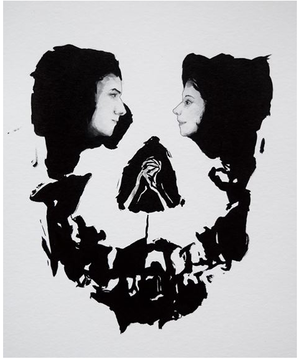Valley of Shadow
Valley of Shadow is a Czech experimental larp, combining scenes where players ‘larp as usual’ with ones where they communicate using only dance – specifically blues dancing.
Summary
Valley of Shadow is set in a noir-style prison. It explores topics such as hopelessness, the cycle of violence, powerlessness – but also love, forgiveness and mercy. All the characters are members of a mobster “family” who got into a hopeless situation – partly through a fault of their own; partly because of an outside influence. At night, the prison falls silent and the characters return to their cells; to dream of a better life, in which they avoided their greatest mistake and did not choose hatred. The dream scenes will use blues dancing as a platform of communication, and they will tell a much lighter story of the golden youth of the jazz era and their one true love.
Statistics
The game is for 36 players in one run and it takes cca 3 hours. Before the game, there are two days of workshops of Blues dancing and creation of characters and their stories. Participation fee is 110 - 140 EUR per run, food and hostel style accomodation included. The game has minimalistic and symbolic scenography, but lights and music play important part in creating the mood of it.
Techniques
- Pre-larp Workshop - workshops of dancing, character creation and non-verbal playing.
- Played through dancing - the only way of communication in significant part of the game is through non-verbal playing and dancing Blues Vernacular Dance.
- Slow take-off - dancing through one song.
- Slow Landing- dancing through one song.
- NPC - few of them to create mood and feeling of the game.
- Soundtrack - for significant part of the game, considering it is played through dancing.
- Tap Out - non-verbal and Safewords.
- Debriefing - in small groups.
- Third Person Principle - especially during debriefing, starting by naming the character (they did not need to do it before the game).
- Fateplay - stories of characters are fully set before the game (partially by organisers, partially in workshop co-creation)
- Alter-egos - two players play one character.
- Dream Scene - cca half of the game is focused on dreams of their characters and is expressed only through dance.
- Time Jump - the game focuses only on important moments in lives of characters, so time is inconsistent and there are time jumps incorporated as well as Flashback.
Articles
In Knutepunkt book 2019.
Authors
- Iva Vávrová
- Kateřina Morgain Holendová
- Jakub Míšek
- Anna Vrtálková
